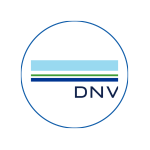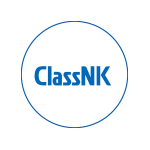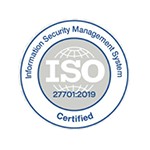Maximizing Operational Performance with Ship Management Software
Maximizing Operational Performance with Ship Management Software
Ship management is a complex undertaking that requires seamless coordination of various operational processes. In today's digital era, ship management software has emerged as a vital tool for optimizing operational performance. This blog post explores how ship management software enhances operational efficiency, streamlines processes, and maximizes overall performance. We will delve into the key features and functionalities of ship management software, highlighting the benefits of integrating diverse operations into a unified platform. Additionally, real-world case studies will showcase how companies have achieved enhanced operational efficiency through the implementation of ship management software. Gain valuable insights and practical tips for selecting the right software solution to meet specific operational needs.
Best Assistance For Ship Management
+90 850 520 0259
Improving Operational Performance with Ship Management Software
Ship management software revolutionizes operational performance by providing comprehensive solutions that streamline processes, automate tasks, and enable data-driven decision-making. The software integrates various operations, such as crew management, maintenance, procurement, safety, and compliance, into a unified platform, fostering seamless communication and collaboration across departments. This consolidation eliminates silos, reduces manual effort, and enhances operational efficiency.
Key Features and Functionalities of Ship Management Software
Ship management software offers a wide range of features and functionalities designed to optimize operational performance. These include:
Crew Management: Efficient crew planning, scheduling, and certification tracking to ensure adequate manpower and compliance with regulations.
Maintenance and Repair: Centralized maintenance planning, tracking, and reporting to streamline vessel upkeep, reduce downtime, and improve asset reliability.
Procurement Management: Integrated procurement processes, including requisitioning, approvals, vendor management, and inventory control, for cost-effective procurement.
Safety and Compliance: Comprehensive safety management systems, incident reporting, and compliance monitoring to ensure adherence to maritime regulations and industry standards.
Voyage Planning and Optimization: Advanced route planning, weather routing, and fuel optimization tools to maximize fuel efficiency and reduce voyage costs.
Financial Management: Budgeting, accounting, and financial reporting capabilities to manage financial aspects of vessel operations effectively.
Document Management: Centralized storage and retrieval of critical documents, including certificates, manuals, and procedures, ensuring easy access and compliance.
Benefits of Integrated Operations
Integrating various operational processes into a unified platform offers numerous benefits for ship management. Firstly, it eliminates the need for multiple standalone systems, reducing complexity and enhancing operational efficiency. Information flows seamlessly between departments, enabling real-time collaboration and improving decision-making. Secondly, integrating operations provides a holistic view of the entire vessel's lifecycle, allowing for proactive maintenance, optimal resource allocation, and improved asset utilization. This leads to reduced downtime, enhanced safety, and increased operational reliability.
Tips for Selecting the Right Ship Management Software
When selecting ship management software, it is crucial to consider specific operational needs and requirements. Here are some key tips:
Identify Operational Pain Points: Assess current operational challenges and prioritize areas that require improvement, such as crew management, maintenance, or procurement.
Evaluate Features and Functionality: Look for ship management software that offers a comprehensive suite of features aligned with your operational needs. Consider aspects such as crew management, maintenance tracking, procurement management, safety and compliance, financial management, and document management.
Scalability and Integration: Ensure that the software is scalable and capable of accommodating future growth. It should also have the ability to integrate with existing systems and third-party applications to facilitate seamless data exchange.
User-Friendly Interface: Opt for software that has an intuitive and user-friendly interface. This will ensure easy adoption by the crew and minimize the learning curve.
Data Security and Compliance: Data security is paramount in ship management. Choose software that offers robust data encryption, access controls, and compliance with industry standards, such as GDPR and ISO 27001.
Vendor Support and Reputation: Consider the reputation and track record of the software vendor. Look for testimonials, reviews, and customer references to assess their level of support and commitment to customer success.
Conclusion
Ship management software plays a pivotal role in maximizing operational performance in the maritime industry. By integrating diverse operations into a unified platform, businesses can streamline processes, automate tasks, and make data-driven decisions. The key features and functionalities offered by ship management software enable efficient crew management, streamlined maintenance, optimized procurement, enhanced safety and compliance, and improved financial management. Real-world case studies showcase the tangible benefits of implementing ship management software, ranging from increased productivity and cost savings to improved safety and regulatory compliance. By following the tips for selecting the right software solution, businesses can embark on a journey toward enhanced operational efficiency, streamlined processes, and sustainable growth in the dynamic maritime industry.
Certificates & Class Type Approvals
Privacy Verified & Quality Validated in NOZZLE

Class Type Approval
by DNV

Class Type Approval
by CLASS NK

Information Security
Management

